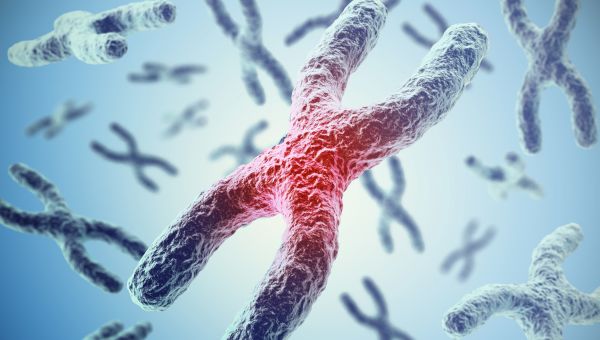9 forms of dementia that aren’t alzheimer’s disease
Learn about other related brain disorders that interfere with cognitive function.
Updated on August 1, 2025

When you hear the word dementia, what comes to mind? It might be Alzheimer’s disease. Alzheimer’s is one of the top causes of death in the United States and the most common form of dementia. But it’s not the only form.
Dementia is an umbrella term for a number of conditions that cause problems with thinking, judgment, or memory. Alzheimer’s accounts for between 60 and 80 percent of all cases of dementia, but other brain disorders can cause dementia as well.
In many cases, people may develop more than one type of dementia. For example, Alzheimer’s disease may occur alongside other forms of dementia, such as vascular dementia or Lewy body dementia. Read on to learn more about these and other types of dementia.

Vascular dementia
High blood pressure isn't just a risk factor for heart disease. It can also lead to dementia, among other problems. Vascular dementia is typically caused by a series of small strokes, when areas of the brain are deprived of oxygen and brain cells die. High blood pressure, smoking, diabetes, atherosclerosis, and a previous history of strokes are the most common risk factors.
Vascular dementia is second only to Alzheimer’s as the most common form of dementia in people over age 65. Depending on the part of the brain affected, symptoms can vary widely and may progress in noticeable steps, with periods of stability or even occasional improvement. Roughly 5 to 10 percent of people with dementia have vascular dementia on its own, but more commonly, vascular dementia occurs as part of mixed dementia.

Parkinson’s disease dementia
Parkinson’s disease is often associated with tremors, body stiffness, and slowness (known as motor symptoms). Those are the most common symptoms, since Parkinson’s destroys the brain’s ability to make a chemical called dopamine that’s important for movement.
But Parkinson’s can also cause dementia-like symptoms, including trouble remembering recent events, difficulty making decisions, and problems judging distance. Between 50 and 80 percent of people with Parkinson’s eventually have these symptoms. Dementia most often doesn’t develop until 10 to 15 years after a Parkinson’s diagnosis.

Dementia with Lewy bodies
Dementia with Lewy bodies (DLB) has similar symptoms to Alzheimer’s and is related to Parkinson’s. It’s the third most common type of dementia after Alzheimer’s and vascular dementia. DLB is the result of abnormal protein deposits in the brain, known as Lewy bodies, which cause brain cells to work less effectively and to eventually die.
Some researchers think that Parkinson’s and DLB are actually the same disease, just expressed differently. Lewy bodies are seen in both conditions. Motor symptoms show up first in Parkinson’s, but dementia symptoms show up first with DLB.

Frontotemporal dementia
Just as dementia is an umbrella term for cognitive problems, frontotemporal dementia is an umbrella term for diseases that cause shrinking in the areas of the brain called the frontal and temporal lobes, which help govern personality, behavior, and language.
Frontotemporal dementia often occurs earlier than Alzheimer’s. It usually strikes when people are between 40 and 45 years old. The causes of frontotemporal dementia are usually unknown. While some gene mutations can cause it, more than half of the people who develop the condition have no family history of dementia.
Frontotemporal dementia can trigger extreme behavior changes, including:
- Inappropriate behavior like theft or sexual promiscuity
- Loss of empathy
- Decline in hygiene
- Apathy
- Poor judgment
- Trying to eat inedible objects
- Speech and language problems
Parkinson’s-like movement issues may develop as well.

Korsakoff syndrome
Korsakoff syndrome is a decline in memory that’s caused by a vitamin B1 deficiency. Because B1 deficiency is common in long-term alcoholics, Korsakoff syndrome is sometimes known as “wet brain.” Korsakoff syndrome can cause severe memory loss and prevent people from forming new memories. Hallucinations sometimes occur, as well.
It often occurs alongside a condition called Wernicke encephalopathy, which can create confusion, memory, and learning problems. The two diseases are often spoken of together, as Wernicke-Korsakoff syndrome. A vitamin B1 supplement shot can help with some of the symptoms of Wernicke encephalopathy.
Recovery from the condition varies: About a quarter of those with Korsakoff syndrome recover, but it may take a year or more and it requires abstaining from alcohol. About half of patients show some improvement in cognitive function, while the remaining 25 percent are unchanged.

Chronic traumatic encephalopathy
Chronic traumatic encephalopathy (CTE) is another brain condition that causes dementia symptoms. People get CTE from repeated blows to the head. Not surprisingly, athletes in high-contact sports like boxing and football are especially prone to it. CTE may result in:
- Cognitive impairment
- Impulsivity
- Depression
- Memory loss
- Difficulty planning
- Aggression
- Suicidal thoughts
- Speech difficulties
- Movement problems and difficulty swallowing
CTE diagnosis can only be definitively diagnosed after the patient has died, with an autopsy and an examination of the brain.

Less common forms of dementia
Other more rare forms of dementia include:
- Huntington’s disease: This is a fatal condition caused by a defective gene. Along with dementia symptoms like impulsivity and difficulty focusing, it can cause movement and muscle problems and depression. Symptoms usually develop in a person’s 30s or 40s. When it develops earlier than age 20, it’s known as juvenile Huntington’s disease and often progresses more quickly.
- Creutzfeldt-Jakob disease: This is another fatal brain disease that has no cure. It is known as a prion disease, related to mad cow disease and kuru. When prion proteins in the brain begin to fold into abnormal shapes, they destroy brain cells. It leads to personality changes, memory problems, and impaired vision that can progress to blindness. The most common subtype usually begins around age 60.
- Normal pressure hydrocephalus: This occurs when cerebrospinal fluid backs up into the brain’s hollow spaces. Cognitive impairment, urinary incontinence, and difficulty walking are symptoms. The cause of normal pressure hydrocephalus is unknown in most cases, although hemorrhages, tumors, head trauma, and infections can lead to the condition. A shunt may be used to drain the excess fluid, which sometimes helps people walk better, but the dementia symptoms and incontinence are more difficult to treat.

Alzheimer’s Association. Vascular Dementia. Accessed August 1, 2025.
Alzheimer’s Association. What Is Dementia? Accessed August 1, 2025.
Alzheimer’s Association. Parkinson’s Disease Dementia. Accessed August 1, 2025.
Centers for Disease Control and Prevention. Alzheimer’s Disease and Dementia: About Dementia. August 17, 2024.
Cleveland Clinic. Dementia. March 12, 2022.
Johns Hopkins Medicine. Dementia. Accessed August 1, 2025.
Mayo Clinic. Dementia. June 7, 2025.
National Institute on Aging. Causes of Alzheimer’s Disease: Alzheimer's Disease Genetics Fact Sheet. March 1, 2023.
National Institute of Neurological Disorders and Stroke. Dementias. August 27, 2024.
National Institute on Aging. What Is Dementia? December 8, 2022.
More On


video

article


video


video


video
